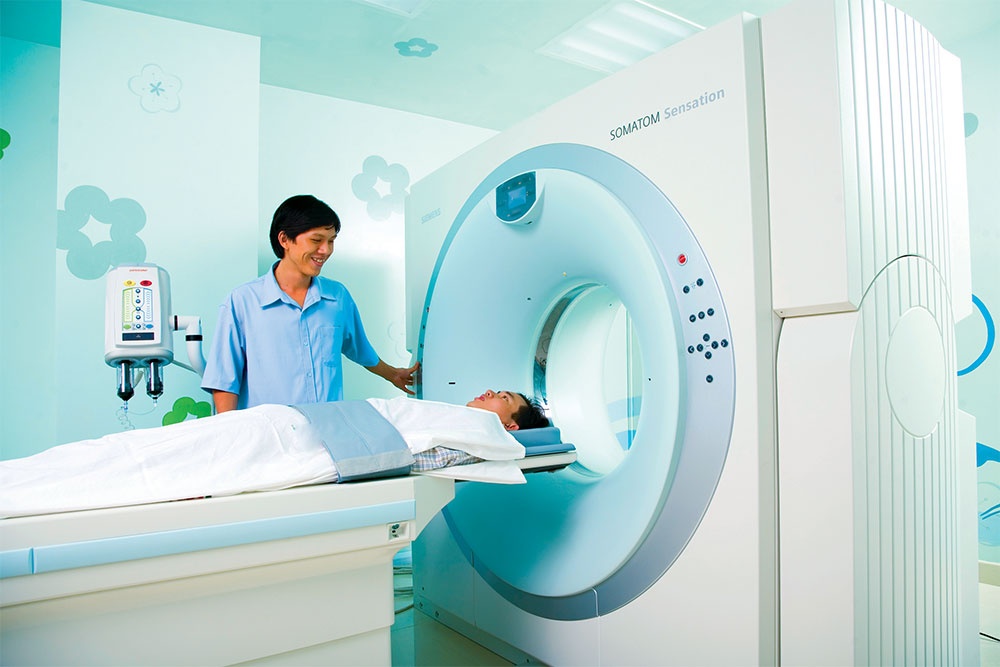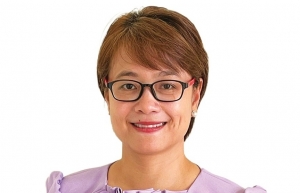Pharma groups step up competition
As many as 170 businesses in the pharma and healthcare industry from various nations gathered at the 28th Vietnam Medi-Pharm expo in Hanoi on December 1-3 to showcase their products to the local market.
 |
| Pharma groups step up competition-illustration photo, Le Toan |
Osaki Shintarou from Japan’s Meiko Trading & Engineering Co., Ltd, told VIR, “Vietnam is a high-potential market for us. It has a rising middle class with increasing demand for high-quality products. We attended the event to seek partners to expand our presence in the local market.”
Meiko Trading & Engineering has been importing and delivering food, lifestyle, and beauty products under the Fujina brand to the Vietnamese market for four years. In recent months, the company has witnessed a 40-60 per cent monthly rise in the number of orders for their products in Vietnam.
“Our products are now available in many markets in Asia, including Hong Kong, Malaysia, Indonesia, Cambodia, and more. We are amazed with the strong growth in Vietnam and are pinning high hopes on the future here,” he added.
Indonesia boasted a group of 12 businesses taking part in this year’s event for the same purpose. Denny Abdi, Ambassador of Indonesia to Vietnam, said that the country’s huge population means that the Vietnamese government has a strong responsibility for the people to make sure that the health industry is strong enough.
“Indonesian firms want to understand the market, sell their products there, and strengthen the collaboration network. We will bring more companies to Vietnam as soon as we can,” Abdi said.
“This participation is crucial because the health industry needs collaboration and working together from research the market to fulfill the needs of people,” he elaborated. “The key success of the health industry is how to address everyday problems using technology. When we talk about technology, we really need to work side by side with our friends.”
Along with Asian players, Vietnam is also on the radar of those from Europe, particularly Poland, Germany, and France. Schülken Form from Germany, which produces injection moulding tools, visited the expo to seek partners and customers.
“We have factories in Russia and Germany. We came to Vietnam for the same reason in 2019, but then had to halt plans due to the pandemic. Vietnam is a growing market again, and I want to be part of this growth,” said a company representative.
According to market researcher IBM, the scale of the local pharma industry is forecast to reach $16 billion in 2026, up from $10 billion in 2020 and $5 billion in 2015. Despite this, the industry’s production capacity can only meet just over half of local demand. In 2018, Vietnam spent nearly $2.8 billion importing pharmaceuticals and this figure increased to $4 billion last year, according to the General Statistics Office.
Meanwhile, strong interest among international players is putting pressure on domestic companies in the industry. This forces them to be more active to maintain their market share.
Vietnamese-led Asia JSC – an importer and distributor of medical devices for over 20 years – crafts rapid testing kits and blood sugar test devices. A representative of the company said, “The Vietnamese blood sugar market is growing because the number of patients is rising rapidly. We want to introduce products and find potential partners because of this.”
The representative admitted that the market competition is mounting at the highest level in 20 years. “In the past, the market only had 3-4 brands. But now the number is much higher with many cheap brands. Moreover, many producers can make these kinds of products with advanced technology.”
At present, 90 per cent of medical equipment is imported from foreign countries to meet needs of hospitals, of which public hospitals account for 70 per cent of the market share. As a result, members of the European Chamber of Commerce’s Medical Devices and Diagnostics sector committee have gained advantages in the market, such as Abbott Laboratories, B.Braun, Medtronic, GE Vietnam, Siemens Healthineers, and Roche.
Indonesian Ambassador Abdi recommended, “Vietnam’s government and the Ministry of Health should learn from other countries, opening mindsets to learn best practices from other countries, while facilitating more engagement in cooperation and partnership to further develop the healthcare industry in the future.”
 | Domestic pharmaceutical firms encouraged to produce rare medicines: official The Ministry of Health (MoH) will propose to the Government to issue policies aimed at encouraging domestic pharmaceutical enterprises to produce rare medicines in order to ensure domestic supply, said Deputy Minister of Health Nguyen Thi Lien Huong said at the Government’s regular press conference on October 29. |
 | The legal adaption measures expected from pharma groups Multinational corporations in Vietnam are expecting changes in drug rules to make more business and investment progress. Tran Ngoc Anh, representative of the US-ASEAN Business Council, discussed with VIR’s Bich Thuy the current barriers and expectations stemming from legal adjustments. |
What the stars mean:
★ Poor ★ ★ Promising ★★★ Good ★★★★ Very good ★★★★★ Exceptional
Related Contents
Latest News
More News
- A golden time to shine within ASEAN (February 19, 2026 | 20:22)
- Vietnam’s pivotal year for advancing sustainability (February 19, 2026 | 08:44)
- Strengthening the core role of industry and trade (February 19, 2026 | 08:35)
- Future orientations for healthcare improvements (February 19, 2026 | 08:29)
- Infrastructure orientations suitable for a new chapter (February 19, 2026 | 08:15)
- Innovation breakthroughs that can elevate the nation (February 19, 2026 | 08:08)
- ABB Robotics hosts SOMA Value Provider Conference in Vietnam (February 19, 2026 | 08:00)
- Entire financial sector steps firmly into a new spring (February 17, 2026 | 13:40)
- Digital security fundamental for better and faster decision-making (February 13, 2026 | 10:50)
- Aircraft makers urge out-the-box thinking (February 13, 2026 | 10:39)

 Tag:
Tag:


















 Mobile Version
Mobile Version